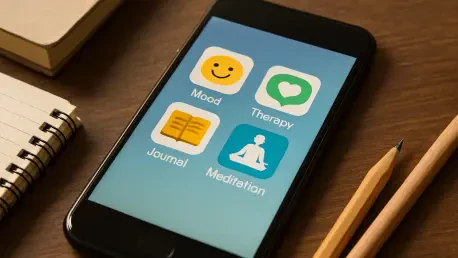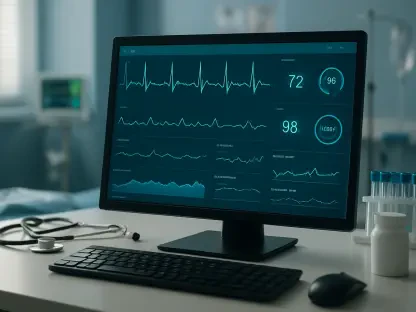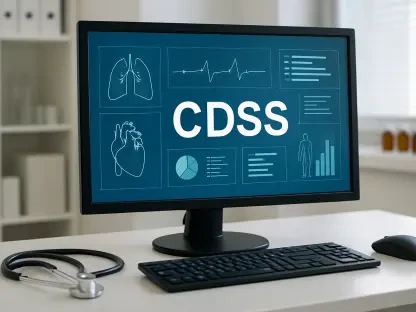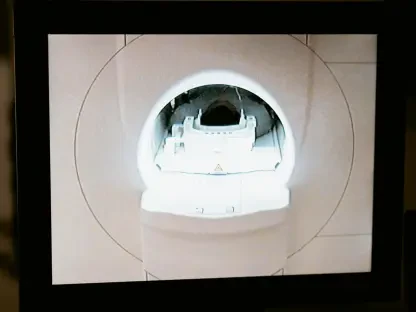In a world where mental health challenges are increasingly recognized as a pressing public health concern, a recent event in Singapore has spotlighted the power of student innovation to address this critical issue, bringing together bright minds to develop impactful solutions. Held at the National Gallery Singapore on September 29, the grand finals of an annual hackathon for tertiary education students focused on creating technology-driven tools for mental health, particularly for teenagers and caregivers of individuals with intellectual disabilities. Organized in collaboration with major technology and mental health organizations, this year’s competition underscored the urgency of such innovations with alarming statistics from recent studies revealing that a significant portion of young adults in Singapore struggle with severe depression or anxiety. This event not only highlighted the potential of digital solutions but also demonstrated how the next generation is stepping up to tackle societal challenges with creativity and determination.
Innovative Solutions for Vulnerable Populations
Amid the flurry of ideas at the hackathon, two student-developed applications stood out as winners in their respective categories, showcasing the potential to transform mental health support. A team from Singapore Management University clinched the university category with Interstellar, a groundbreaking app designed to detect early signs of anxiety or depression among youths. By utilizing bots to monitor interactions on popular platforms like Discord and Reddit, Interstellar identifies at-risk individuals and seamlessly connects them to relevant resources for timely intervention. This approach addresses a critical gap in mental health care by focusing on early detection, which can significantly improve outcomes for teenagers who often hesitate to seek help. The app’s innovative use of technology to bridge the divide between digital spaces and real-world support systems highlights the importance of meeting young people where they are most active, ensuring that help is just a click away in moments of need.
Equally impressive was the polytechnic category winner, MindEase, developed by a team from Ngee Ann Polytechnic to support caregivers of individuals with intellectual disabilities. This digital companion app offers tailored features to alleviate stress and provide emotional support for those who often bear the unseen burden of caregiving. Recognizing the unique challenges faced by this group, MindEase integrates tools to manage daily pressures while fostering a sense of connection and relief. The app’s design reflects a deep understanding of the emotional toll caregiving can take, offering practical solutions that empower users to prioritize their well-being alongside their responsibilities. Both winning teams were awarded significant prizes for their contributions, underscoring the value placed on innovative mental health solutions. These applications represent a beacon of hope, demonstrating how technology can be harnessed to create meaningful change for vulnerable populations in Singapore.
Technology and Mentorship Fueling Creativity
The success of the student teams at this hackathon was not achieved in isolation but was bolstered by access to cutting-edge technology and expert guidance. The 55 finalists, hailing from 10 polytechnics and autonomous universities across Singapore, leveraged advanced tools such as artificial intelligence, generative AI, and cloud-native platforms to bring their ideas to life. Supported by robust infrastructure and solutions from leading technology vendors, the participants were equipped to design applications with real-world applicability. This integration of high-tech resources allowed for the creation of sophisticated tools capable of addressing complex mental health challenges. The event showcased how access to such technology can empower students to think beyond traditional approaches, pushing the boundaries of what digital solutions can achieve in the realm of emotional and psychological support.
Beyond technological resources, mentorship played a pivotal role in shaping the outcomes of the competition. Guidance from experts at a regional innovation hub focused on AI transformation provided invaluable insights into areas like AI engineering and machine learning operations. This hub, aligned with Singapore’s national strategy to advance AI capabilities, aims to train thousands of students and professionals in the coming years, from now through 2027. Mentors offered hands-on support, helping teams refine their concepts into polished, impactful applications. This collaborative environment fostered a spirit of innovation, ensuring that the solutions developed were not only technologically sound but also deeply empathetic to the needs of their target users. The blend of mentorship and technology access created a fertile ground for creativity, proving that structured support can amplify the potential of young innovators to address pressing societal issues like mental health.
Shaping the Future of Mental Health Support
Reflecting on the hackathon, it’s evident that the event served as a powerful platform for highlighting the intersection of technology and mental health advocacy. The winning applications, Interstellar and MindEase, stood as testaments to the ingenuity of students who tackled real-world challenges with actionable digital tools. Their success was a reminder of the profound impact that early intervention and stress relief can have on vulnerable groups, as validated by recent studies showing the widespread prevalence of mental health struggles among youths and caregivers. The event also reinforced the growing consensus that digital platforms can play a crucial role in scaling support systems to reach those in need, breaking down barriers to access that often hinder timely care.
Looking ahead, the outcomes of this competition pointed to actionable steps for sustaining momentum in mental health innovation. Stakeholders in education, technology, and mental health sectors were encouraged to deepen collaborations, ensuring that student-led solutions receive the support needed to transition from prototypes to widely accessible tools. Investments in training programs and innovation hubs should continue to equip future generations with the skills to address evolving challenges. Additionally, policymakers and organizations might consider integrating such digital tools into broader mental health frameworks, amplifying their reach and impact. The event’s legacy lies in its demonstration of how technology, guided by empathy and expertise, can pave the way for a more supportive and inclusive approach to mental well-being in Singapore and beyond.









